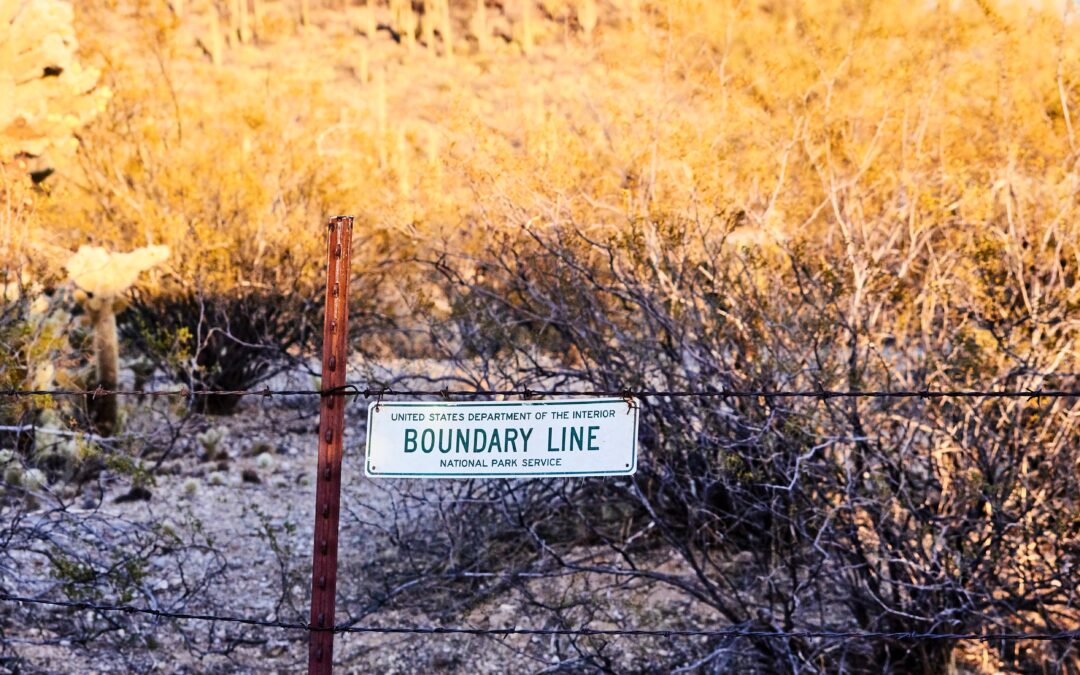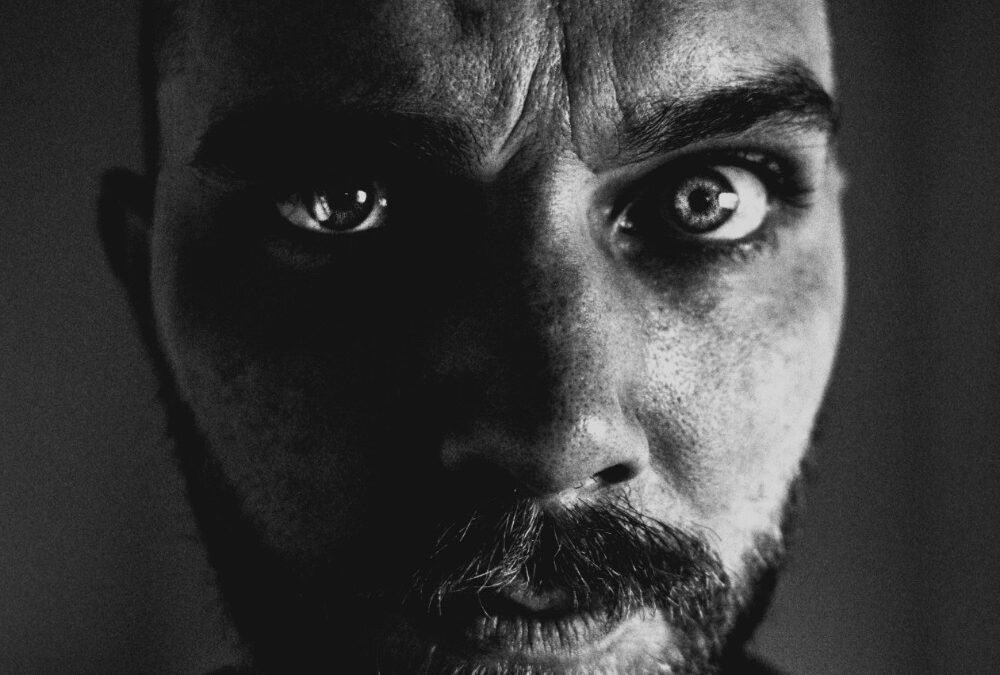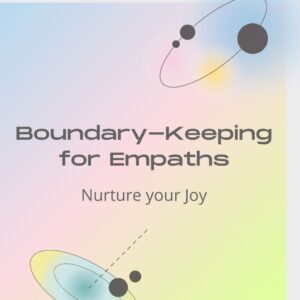
by Matthew Koren | Jul 13, 2023 | Community Conversations
Setting strong boundaries is an essential skill for maintaining emotional resilience and fostering healthy relationships. Boundaries act as protective shields, ensuring that our emotional well-being is not compromised by others’ actions or expectations. However, many people struggle with setting and enforcing boundaries effectively. In this blog post, we will explore practical tips on how to establish strong boundaries, enabling you to prioritize your needs and cultivate emotional resilience.
Understand Your Limits
To establish strong boundaries, it’s crucial to be self-aware and understand your limits. Reflect on what makes you feel uncomfortable or emotionally drained in different situations. Recognize when someone’s behavior or demands encroach upon your personal space or values. Knowing your limits will help you identify where boundaries need to be set.
Communicate Clearly and Assertively
Once you recognize your boundaries, it’s important to communicate them clearly and assertively. Clearly express your needs, expectations, and limits to others without feeling guilty or apologizing for them. Use “I” statements to express your feelings and make requests, focusing on your own perspective rather than blaming others. Effective communication helps ensure that others understand and respect your boundaries.
Learn to Say No
Learning to say “no” is a powerful tool in setting boundaries. It’s essential to prioritize your own well-being and not overextend yourself to please others. Practice assertively declining requests or invitations that do not align with your needs or values. Remember, saying no does not make you selfish; it empowers you to protect your emotional resilience.
Identify and Manage Emotional Guilt
Setting boundaries can trigger feelings of guilt, especially if you’re accustomed to prioritizing others’ needs over your own. Recognize that taking care of yourself is not selfish but necessary for your emotional well-being. Manage guilt by reminding yourself of your worth and the importance of honoring your boundaries. Surround yourself with supportive individuals who understand and respect your boundaries.
Establish Consequences
Boundaries without consequences are merely suggestions. Clearly establish consequences for those who consistently violate your boundaries. Consequences may range from reducing contact or setting distance to more significant measures if necessary. Enforcing consequences reinforces the importance of your boundaries and demonstrates your commitment to self-care.
Setting strong boundaries is an ongoing process that requires self-awareness, clear communication, and self-advocacy. By understanding your limits, communicating assertively, learning to say no, managing guilt, and establishing consequences, you can protect your emotional resilience and build healthier relationships. Remember, setting boundaries is an act of self-love and a vital step towards prioritizing your well-being.
Matthew is a certified Guide for Conscious Leaders, and is inspired by the potential of connecting the measurable and immeasurable, Science and Spirit, to bridge the worlds of scientific theory with the magick of real-world experience. He is driven by a need to understand why we exist and our place in the multi-universe. Matthew’s approach assimilates the latest research in consciousness studies, psychology, business, organizational development, mindfulness and meditation, resonance and quantum field theory to support his clients.
Matthew now serves as a consultant and guide for his clients at Spirit in Transition. His affiliations include: Certified Guide and Ritual Master by the Modern Mystery School, Member of the National Gay and Lesbian Chamber of Commerce, & Conscious Capitalism International. Matthew Koren lives in New York and Florida with his partner, and travels nationally and internationally to coach, consult and teach. Matthew invites you to introduce yourself by contacting him for a virtual meet-and-greet by clicking the following link: https://templemedicine.as.me/online-consult

by user_dd | Feb 20, 2020 | Community Conversations
As a Guide in the Lineage of King Salomon, I am constantly supporting my clients in conversations where they are experiencing some form of resistance. Yesterday, I discovered another example of “what we resist, persists.”
When someone comes at us with their [untrue] story and we feel threatened, we usually do a version of one of these two things:
- We fight—“That’s not true!” “You don’t know me.” “I AM lovable.”
- We project—“I’m not mad, you’re mad.” “This isn’t my issue, it’s your issue.”
- Sometimes we do both!
Between fighting for our own truth, and projecting our hurt feelings onto others, we get thrown off our center and into negative emotions more interested in tearing the other person down rather than holding them compassionately in their process of becoming.
Have you ever felt like that?
And their story about us MAY be wrong, or we MAY actually be mad, but not at what the other person thinks we’re mad about. Oftentimes empaths get into trouble trying to interpret or place a false story on their very real sensory experience. In any case, there is a lack of understanding because there is a lack of listening.
As a Guide, my role is to clarify and inspire people on their evolutionary path of progression.
I discussed a scenario like this that my client had recently, as well as some potential approaches. A team mate asked for time off, but instead of going directly to my client, the employee went through another team member, the office manager. The way she communicated the message was, “I know you’ll probably be mad, but…” My client had a knee-jerk reaction which she regretted later.
So often team members will project their hurt feelings onto the leader. I offered to my client that resisting the initial conversation with her office manager about whether she’d be mad had stopped the flow of energy in the conversation. This left us with a pool of emotional energy that needed to be released the next day, when the office manager brought it up again (passive aggressively).
When we allow others to be heard fully, and actually make the effort to articulate their story in their own words, we get out of the way and allow that emotional energy to continue to flow. If my client had said something along the lines of, “I understand you think I’ll be mad about this,” this allows the story to move instead of getting stuck somewhere in our body. Whenever we resist communication flowing to us, it usually gets stuck in our aura. When we allow it to flow, we have the opportunity to use our will to redirect the energy to create a higher good—like understanding, empathy, compassion.
The key to ‘holding space’ is that it doesn’t matter whether the story is true, what matters is that the energy moves.
By facilitating and redirecting the flow of energy, Adepts, and particularly Ritual Masters, in our lineage are able to be drivers of their reality rather than passengers experiencing the ups and downs of their lower brain. This helps create thriving relationships, both personally and professionally.

by user_dd | Jun 18, 2019 | Community Conversations
Last weekend I had the pleasure to join the Landmark Advanced course in Portland. I haven’t done a Landmark program since 2009-2010 when I completed their first program in the Curriculum for Living called the Landmark Forum, and then their two advanced communication courses: Access to Power and Power to Create.
I gained a lot of personal empowerment from these courses, and as you know, personal empowerment is the name of my game. I dork out on this stuff. So, I wanted to share a bit about how difficult this advanced course was, and how glad I am that I participated, through a bit of case study example: let’s call him Charles.
Naysayers beware
First, for all the Landmark naysayers who complain about it being a cult or begrudge them for enrolling their participants in asking you to join them for a special evening where they try and sell you their programs: GET OVER IT! You get marketed to everyday by brands you that don’t even remember, and don’t begrudge them. You just ignore them. So why do you have a problem saying ‘no’ and ignoring these requests for your attention, if you aren’t interested?
By the way, many religions and sports are by definition cults too, so apparently being in a cult is socially acceptable. In other words, please don’t make Landmark Education wrong for asking for your business. It’s what American businesses do.
Speaking from the perspective of a business owner, asking your clients to refer you business is the most respectful form of marketing to you, the prospective client. One of my clients must think that my service is valuable enough that you might get something out of it. That’s a compliment to you and to me, the business owner. Not to mention that referral marketing keeps programs like Landmark’s incredibly cheap and accessible to everyone, compared to the value you are getting. How much do brands pay to advertise on T.V., radio, the internet, etc.?
Not to mention the fact that parts of this curriculum are also taught in some of the best ivy league schools in the nation, for those of you that need some other authority (besides yourself) to make things OK. If it’s good enough for Harvard, Stanford, Yale, etc, it’s good enough for you.
Sorry, but had to get that off my chest…Ok…moving on.
The Problem with Saying No
There’s no problem with saying ‘no.’ I know, I know; that’s a contradiction with the header leading into this section, but I was setting you up on purpose. What I have to share about my evening is that I had a guy in my group, let’s call him Charles for anonymity, who was on a mission to say ‘no’. He got very angry and, dare I say ‘agro,’ about saying ‘no’ too.
Remember, you get what you’re looking for, and if you’re looking for people to be out of integrity, you WILL find that. We all say and do contradictory things. I’m not defending that, I’m just saying look at yourself too, Charles. You are out of integrity all the time. At others have the balls to admit it. If you look for it, you WILL find things you don’t like about how people are. So Charles, why not look for how the others out of integrity are contributing to you? That’s what I’m doing with my case study below.
How Charles was a contribution to me
I once had a music teacher say, “If you’re going to make a mistake, make it big.” My first thought Charles was: you knew what you were getting into, you knew Landmark was going to ask you to enroll people in a possibility of taking their programs, that’s made abundantly clear in the experience before you got here (this is the second course), so why get so upset about it? After all, you chose to be here.
My second thought, and I didn’t see this until after a number of interactions with this guy where I knew he was going to say no, and he was clearly perturbed that I asked him anyway. It was like he didn’t want to have to say ‘no.’ Now that’s my story, but follow me here if you can. If your intention is to say ‘no’ as your context for being in a space, which is what Charles stated, and someone asks you a question, and you say ‘no,’ why are you getting angry about that?
So it gets better…after numerous aggressive ‘No’s from this man: once at the mike where he told everyone to F*#@ off, and once where he stomped out of his seat stepping on someone’s foot in the process, to the last ‘no’ where instead of saying ‘no’ he says, “Will you have sex with me?” The woman answers, “No.” and starts crying, and he looks at me with the message on this face “See, I told you so.” I realized something very profound—this guy’s really not OK with saying ‘No.’
If ‘No’ were no big deal, then why get so angry about saying ‘No’? Especially when you’ve setup the expectation that you’re going to say ‘No’ to everyone about everything! I mean, I expect it dude, no need to get aggressive.
The Final Touch
After this last, obviously hurtful interaction, Charles got up and left. It was then that I had my deepest realization. The guy didn’t apologize. I couldn’t help but think, this guy can’t forgive himself and he doesn’t trust us to forgive him either. He hears us continue to invite him back, but he can’t really understand that we love him despite his No’s and his aggression and that we’re willing to forgive him. But until he lets us forgive him, I don’t believe he’ll ever learn to forgive himself. And this is the highest form of love—the ability to forgive yourself.
By the way, if you’re going to be a tall, aggressive man in our culture, you have to be responsible for your impact on others.
So despite the praise my group gave me as their group leader, this was my failure of the Advanced Course. I didn’t call this guy out on his B.S., on hiding, on being a coward. I didn’t call him out for not apologizing when he hurt someone in my community, even if he was fully justified in declaring his right to say ‘No.’ Leaving after you hurt someone without apologizing means you don’t care about them or yourself.
I didn’t call him out on his unwillingness to let others be wrong and let himself be wrong, to recognize and be with that he hurt people, and invite him to let them forgive him anyway. To be forgiven is a courageous act. To forgive yourself requires even more fortitude.
But I will call out not him, but this behavior next time…for the benefit of our whole community.




